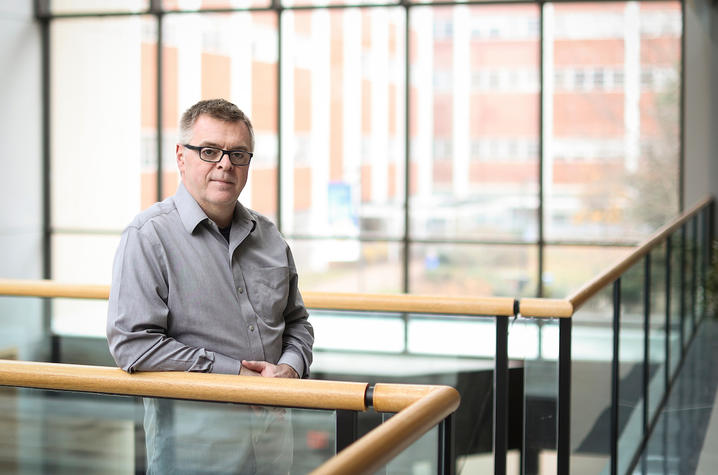Prestigious NIA grant to launch new Sanders-Brown training initiative

LEXINGTON, Ky. (Oct. 14, 2025) — A prestigious grant from the National Institute on Aging will launch a new initiative at the University of Kentucky Sanders-Brown Center on Aging to train the next generation of Alzheimer’s disease scientists.
The five-year, $2 million grant will launch the Kentucky Postbaccalaureate Alzheimer's Disease (KYPAD) Research Education Program.
“This program will give our young scientists the immersive training and support they need to make breakthrough discoveries that will change lives,” said M. Paul Murphy, Ph.D., Sanders-Brown associate director for education and principal investigator of the grant. “This is more than an investment in research — it’s an investment in people. By supporting trainees from across Kentucky and beyond, we’re ensuring that future discoveries in Alzheimer’s research will draw on a rich variety of perspectives and expertise.”
The KYPAD program offers recent college graduates in biomedical and behavioral sciences hands-on research experiences at Sanders-Brown, a national leader in brain aging studies.
Participants will be mentored by the center’s many experts, take part in graduate-level coursework and workshops and join national scientific events such as the Markesbery Symposium on Aging and Dementia.
Murphy, a professor in the Department of Molecular and Cellular Biochemistry in the UK College of Medicine, will lead the KYPAD program’s mentoring effort. In his two decades at UK, Murphy has guided more than 90 students, earning numerous honors for outstanding teaching and mentorship, including university and NIH awards.
KYPAD is designed to give trainees the opportunity to pursue meaningful research projects in Alzheimer’s disease and related dementias. The program combines advanced lab work with mentorship, professional growth and a supportive learning environment.
“With this new grant, we are strengthening Sanders-Brown’s long-standing commitment to innovative education, scientific excellence and community impact in Alzheimer’s research,” said Linda Van Eldik, Ph.D., director of Sanders-Brown and UK’s Alzheimer’s Disease Research Center. “By training a new generation of investigators, the KYPAD program will help secure a brighter future for families affected by dementia in Kentucky and across our country.”
Research reported in this publication was supported by the National Institute on Aging of the National Institutes of Health under Award Number R25AG092311. The content is solely the responsibility of the authors and does not necessarily represent the official views of the National Institutes of Health.
As the state’s flagship, land-grant institution, the University of Kentucky exists to advance the Commonwealth. We do that by preparing the next generation of leaders — placing students at the heart of everything we do — and transforming the lives of Kentuckians through education, research and creative work, service and health care. We pride ourselves on being a catalyst for breakthroughs and a force for healing, a place where ingenuity unfolds. It's all made possible by our people — visionaries, disruptors and pioneers — who make up 200 academic programs, a $476.5 million research and development enterprise and a world-class medical center, all on one campus.




